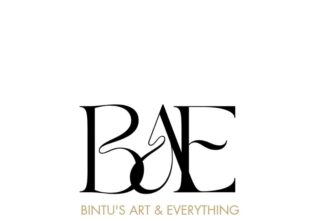For years, applying for a U.S. visa has been a rigorous process, focusing on academic credentials, financial stability, and ties to your home country.
But as of May 31, 2025, a new, potentially alarming, layer of scrutiny has been added, signaling a significant shift in how American authorities view your online presence.
In an unprecedented move, Secretary of State Marco Rubio ordered increased examination of social media profiles for foreigners seeking to visit Harvard University.
The most striking detail? Consular officers are now being told that an applicant’s lack of an online presence, or having social media accounts restricted to ‘private,’ could be deemed a red flag and even lead to a visa denial.
This isn’t just about Harvard; it’s a pilot program that could set a new standard for U.S. visa vetting worldwide.
If you’re planning to study, work, or even visit the U.S., understanding this new era of US Visa Social Media Scrutiny is absolutely vital. Let’s decode what this means for your next application.
The Big Reveal: Your Social Media Under the Visa Microscope
The directive, dispatched to U.S. embassies globally, marks the latest salvo in the Trump administration’s broader push for heightened national security vetting, particularly targeting foreign students and academics.
READ ALSO: Unpacking the Debate: Is a Teen Social Media Ban the Answer for Youth Well-being?
- The Pilot Program: Initially, this enhanced scrutiny targets all foreigners applying to visit Harvard, encompassing “prospective students, students, faculty, employees, contractors, guest speakers, and tourists.”
- The Controversial Clause: Consular officers are explicitly ordered to scrutinize applicants’ social media profiles and, astonishingly, can request that private accounts be made public. As Secretary Rubio stated, “Consular officers should consider whether the lack of any online presence, or having social media accounts restricted to ‘private’ or with limited visibility, may be reflective of evasiveness.”
This means your digital silence, or your efforts to protect your privacy, could now be interpreted as suspicious behavior, potentially leading to a visa denial.
“Damned If You Do, Damned If You Don’t”: The Privacy Paradox
This new policy immediately raises significant concerns among lawyers and free-speech advocates. As Greg Lukianoff, president and CEO of the Foundation for Individual Rights and Expression, aptly put it, “It seems a little bit like a damned if you do, damned if you don’t situation.”
READ ALSO: How to Truly Engage Your Audience on Social Media: A Nigerian Brand Playbook
- The Dilemma: If you actively post on social media, your views and opinions could be scrutinized and potentially used against you. If you choose not to post, or keep your accounts private, that very absence can now be considered a sign of “evasiveness.”
- Alarm Bells for Privacy: Sofia Cope, a staff attorney at the Electronic Frontier Foundation, called penalizing individuals for not being active on social media or keeping their online presence shielded an “outrageous overreach” by the administration. This policy appears to challenge fundamental privacy rights.
This move comes amidst an ongoing clash between the White House and elite universities like Harvard, which has morphed into a broader debate about the role of U.S. higher education and the civil liberties of foreign nationals.
More Than Just a Scroll: What Consular Officers Are Looking For
The cable’s instructions empower consular officers to:
- Actively scrutinize social media profiles.
- Demand that private social media accounts be switched to public for review.
- Interpret a lack of online activity or privacy settings as a potential indicator of “evasiveness.”
While the traditional rigorous vetting process (academic credentials, financial means, ties to home country, intent to return home) remains, this new directive adds an entirely new, potentially subjective, layer to the assessment.
Who Needs to Pay Attention? (And Why)
While the pilot program specifically targets Harvard visitors, the language of Rubio’s cable (“pilot for the future”) suggests this policy could eventually expand. Therefore, anyone considering applying for a U.S. visa should be aware:
- Prospective Students: Especially those aiming for top universities, but potentially all international students.
- Academics & Researchers: Visiting scholars, guest speakers, and anyone collaborating with U.S. institutions.
- Employees & Contractors: Individuals coming to the U.S. for work.
- Even Tourists: If the policy expands, a minimal or private online presence could come under question for general travel visas.
Given that over 1.1 million foreign students visited the U.S. in the 2023-2024 school year (with India and China sending the most), the potential impact of this policy is immense.
Navigating This New Terrain: What You Can Do
In this evolving landscape, a proactive approach to your US Visa Online Presence is essential:
- Assume Scrutiny: Operate under the assumption that anything you post (or don’t post) online could be reviewed by visa officers.
- Review Your Digital Footprint: Conduct a thorough audit of your public social media profiles. What narrative do they tell? Is it consistent with your visa application?
- Be Mindful of Content: Avoid content that could be misinterpreted, culturally insensitive, or express views that might conflict with U.S. policies or values.
- Understand Privacy Settings: While you have the right to privacy, be aware that you might be asked to make accounts public, and refusal or complete absence could be a negative factor.
- Cultivate a Professional Online Persona: Ensure your LinkedIn profile, academic publications, or any professional online presence is up-to-date and reflects your genuine purpose for visiting the U.S.
- Seek Expert Advice: If you have any concerns about your online history or specific circumstances, consult with an experienced immigration lawyer.
- Be Prepared to Explain: Be ready to clearly and calmly explain any aspect of your online presence (or lack thereof) if asked during a visa interview.
The directive on US Visa Social Media Scrutiny marks an unprecedented step in international travel and immigration. It underscores a growing trend where your digital footprint is becoming as crucial as your financial records or academic transcripts in determining your eligibility to enter a foreign country.
For anyone aspiring to visit the U.S., this is not just news; it’s a call to action. By understanding these new rules and proactively managing your online presence, you can better prepare for the rigorous vetting process and increase your chances of a successful US Visa application. Your digital shadow now truly precedes you.






